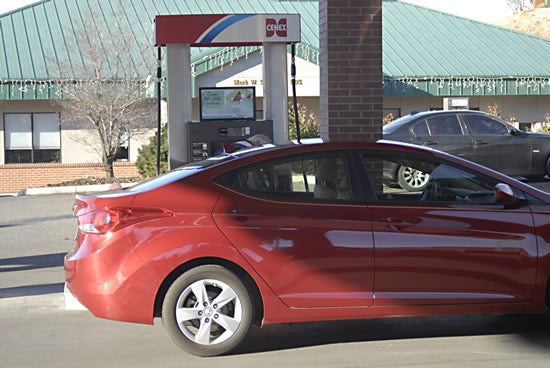It appears the President studied economics with his textbook upside down.
He proposes to raise taxes on oil companies in order to combat high gasoline prices. Or not. Maybe his textbook was right side up and he thinks gasoline prices are too low. That would be consistent with statements by his Secretary of Energy, Steven Chu.
On Thursday, the President reiterated his call for higher taxes on oil companies. The President pretends increasing taxes is just removing oil industry subsidies. They are tax increases.
For instance, the unfair tax break that makes up nearly half of what Obama calls “subsidies” is the manufacturing tax credit. All manufacturers except the oil and gas industry get to deduct 9 percent of their revenues before calculating their tax bills. (It’s worth noting that “manufacturing” is so broadly defined that it includes newspapers and software companies in addition to producers of wind turbines and solar panels.) Though oil and gas producers get the deduction, they are singled out for a lower 6 percent deduction.
Let’s review that. The oil and gas industry gets a deduction that is only two-thirds as generous as for all other manufacturers (wind turbine and solar panel manufacturers and even The New York Times, for example), yet the deduction is called a subsidy to oil and gas. The President’s proposal does not eliminate the deduction for any other industry. So back to the tax-increase story…
When the tax increases on oil and gas companies were proposed last year, the Congressional Research Service (CRS) was asked to analyze the impact. Here is their conclusion (emphasis added):
On the one hand, the tax changes…would increase tax collections from the oil and natural gas industries and may have the effect of decreasing exploration, development, and production, while increasing prices and increasing the nation’s foreign oil dependence. These same proposals, from an alternate point of view, might be considered to be the elimination of tax preferences that have favored the oil and natural gas industries over other energy sources and made oil and gas products artificially inexpensive, with consumer costs held below the true cost of consumption, when the external costs associated with environmental costs and energy dependence, among other effects, are included.
The CRS says there are two ways of looking at the impact of the tax increases: 1) They will increase gasoline prices and dependence on foreign oil; or 2) They will and should increase gasoline prices, because gasoline is “artificially inexpensive.”
Everybody get that? There is no question about which direction gasoline prices will go if oil industry taxes are raised. They will go up—now and in the future. The real question is whether we want them to go up or not. The Obama Administration has made clear that it wants them to go up. A lot of Americans disagree.
